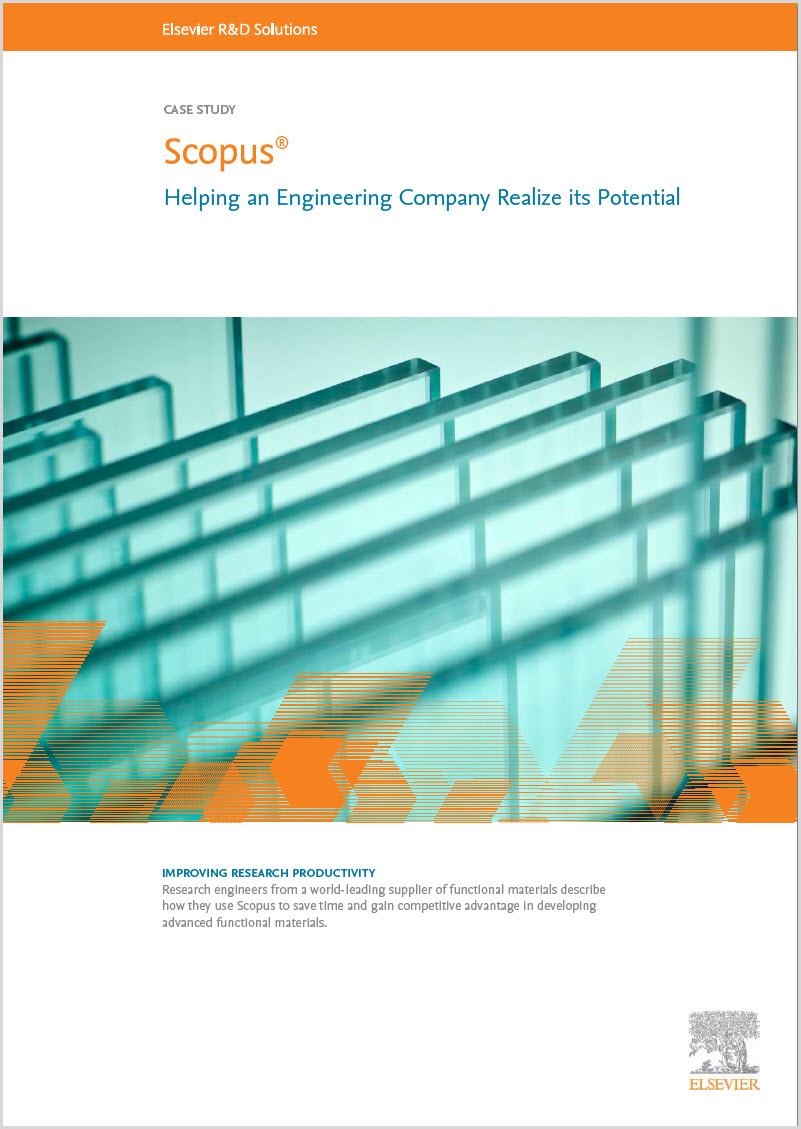Case Study: Increased competitive advantage in developing functional materials
At a leading supplier of functional materials, a couple of research engineers shared with us how they use Scopus to save time and increase their competitive advantage in developing advanced functional materials.
Developing attractive new products, improving existing products to better satisfy evolving customer expectations, and upgrading manufacturing processes to be more efficient are the top concerns of this company. Additionally, compliance with the latest environmental and safety regulations is another major factor. Across various divisions, including the glass and ceramics group, Scopus is a reliable tool that enables innovation in a fraction of the time previously spent – the engineers estimate that it made the investigational stage of research 40% more effective, and lowered development time by 20%.
The richness and variety of data available in Scopus enable researchers to vastly speed up the process of basic research. Research around the potential of new applications, product development and keeping up-to-date with the latest developments, as well as identifying potential new collaboration partners, is where Scopus plays a key role.
One engineer describes how he uses Scopus to do a broad initial search, “exploring and establishing the state-of-the-art by looking at references and following citations to see how a piece of research has been applied most recently, both within my core area and outside it.” He then applies the advanced search capabilities to pinpoint the specific information needed to formulate plans and initiate new projects.


